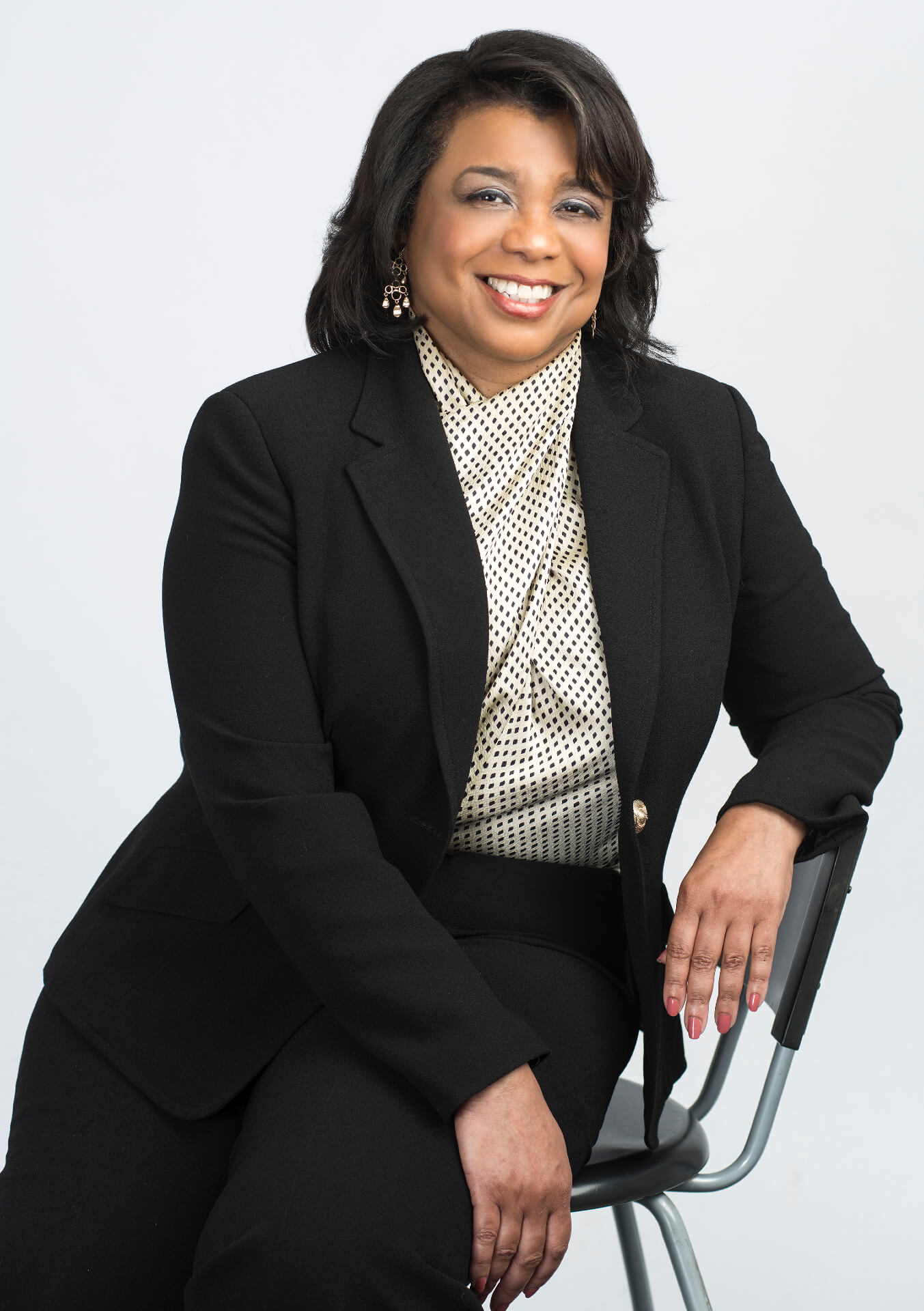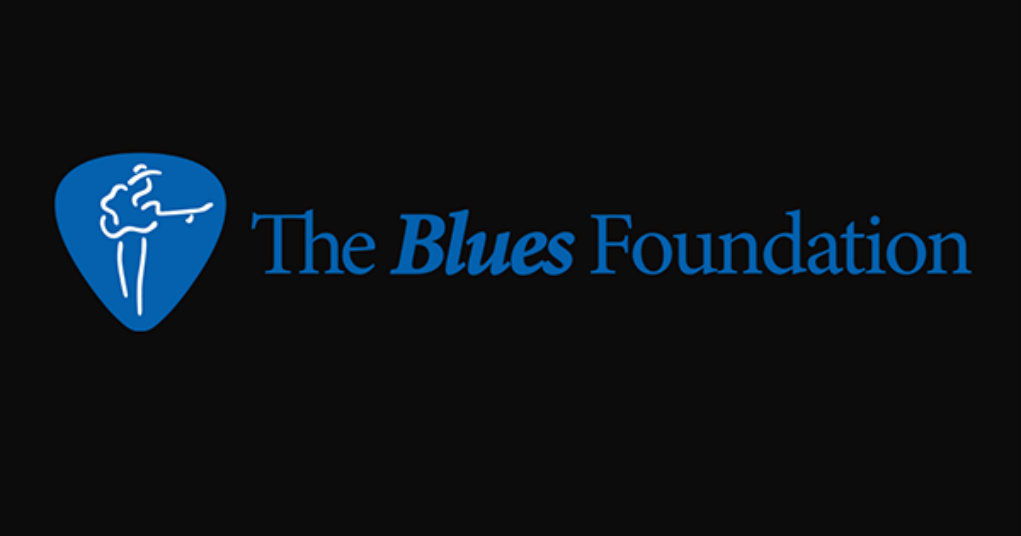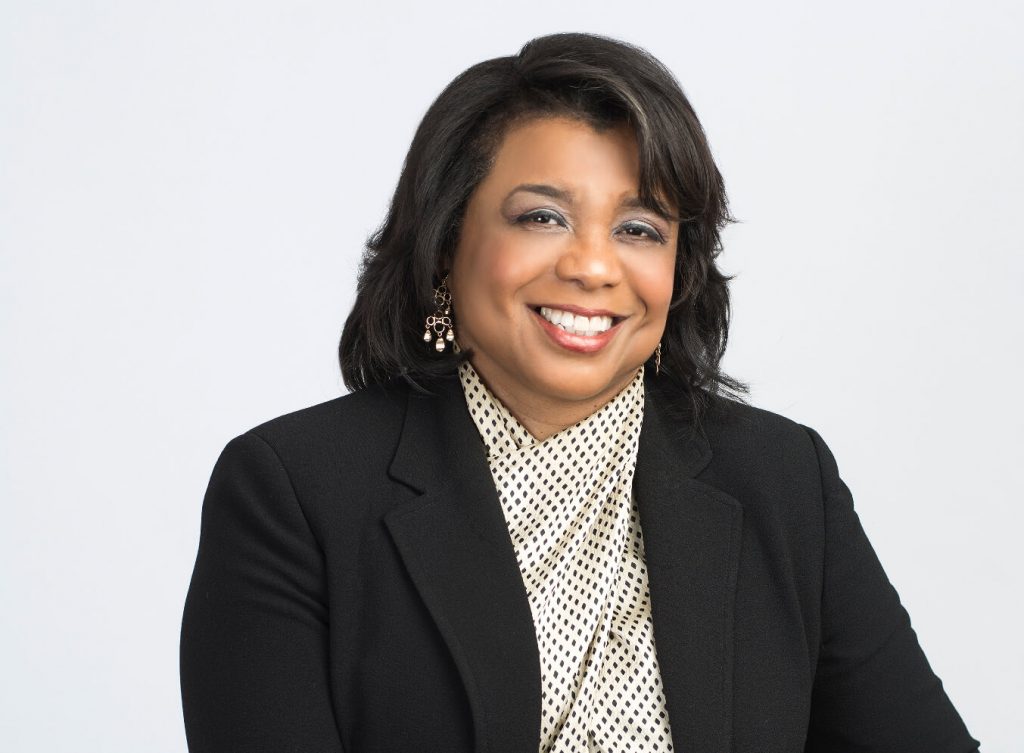On October 1st, 2020 Patricia Wilson Aden took the reins of The Blues Foundation in Memphis, Tennessee as its new President & CEO. Her appointment, coming as it did amid the COVID-19 crisis, brought more than a handful of challenges to Ms. Aden. She has met them head on with grace and experience, excited for the day when she can make connections to the blues community at large in person.

With a background in historic preservation, specializing in the preservation and celebration of African American cultural resources, Aden brings more than three decades of experience to the post. Her most recent experience as President & CEO of the African American Museum in Philadelphia and her earlier role as Executive Director of the Rhythm & Blues Foundation make her uniquely qualified to lead The Blues Foundation.
One of the first things noticeable in our conversation is Aden’s frequent use of the word “we.” She doesn’t use it as a “royal we,” but rather as reference to herself and her entire team. That generosity alone strikes of humility, gratitude, and professionalism.
JD Nash for American Blues Scene:
You are the new President and CEO of The Blues Foundation.
Patricia Wilson Aden:
I am. I’m very excited for this new opportunity to join the blues community.
You had extensive experience coming into this position. Is that right?
I was the Executive Director of The Rhythm and Blues Foundation for about three years.
Are you a musician yourself, or what brings you into the music field like this?
Fortuitous circumstances. I am not a musician. I am a non-profit manager. I specialize in leading non-profits that celebrate cultural resources. In particular, African American cultural resources. My background is actually in historic preservation.
This shows how serendipitous things can be; I was working in Philadelphia, leading an historic preservation organization, and we sold an historic theater to Kenny Gamble of Gamble & Huff, (The Sound of Philadelphia). At that point, Mr. Gamble had a vision of making Philadelphia the home of Rhythm & Blues. Part of that strategy called for bringing The Rhythm & Blues Foundation to Philadelphia. He eventually loaned me to The Rhythm & Blues Foundation for what was supposed to be a short term executive loan. What was supposed to be a three month assignment turned into a three year adventure for me.
Since then I’ve maintained my contact with the music community even as I worked for the African American Museum in Philadelphia as their President. So when I received the call from The Blues Foundation it seemed like the stars had aligned and it was a conversation that I welcomed.
So do you now live in Memphis?
I moved to Memphis in October and have found the Memphis community to be very welcoming, and very warm. I look forward to post-COVID when I can really get out and start to meet our partners and those people who make up the blues community here. That means not only the artists, but those people who run the venues, and everything that comprises the blues community. I’m also very anxious to make that pilgrimage down to Mississippi to see many of the sites associated with Delta blues.
COVID has really limited my introduction, but I’m very eager to get out there and make those connections.
And we are eager to have things back in other than a virtual format. The International Blues Challenge and Blues Music Awards for example.
Absolutely. I’m very eager to experience the excitement and vitality that everyone tells me is unique to The International Blues Challenge on Beale Street. We are keenly aware of how much IBC will be missed, not only for the artists but for blues fans. We bring thousands of people to Memphis so its loss is impacting the Memphis economy as well. From the venues to the hotels to the restaurants, they’re all feeling the absence of a live IBC.
Mostly I think the larger blues community is feeling the lack of a live IBC. It plays a very unique role in serving as that launching pad for so many of our blues musicians. It is the chance for them to congregate, hone their craft and meet their fellow blues musicians. They really use IBC as a training opportunity to launch their careers. One year they compete in IBC and the next year they may be a BMA winner. We’re just so frustrated that, due to COVID restrictions, we could not offer it as a live event again in 2021.
Speaking of the BMA (Blues Music Awards), they will once again be virtual this year, is that correct?
Yeah (heavy sigh). We had to make that tough decision. We held out as long as we could but we had to consider several factors. One would be of course state and local regulations. Others would be the likelihood of how many people would be vaccinated by then and feel safe, but we’re also very aware that many people in our audience for the BMA are older people. We must always prioritize the safety of our audience and of our artists. We knew that we were working with a vulnerable population. Some people would either be unwilling or unable to travel. We thought it would be best if we tried to put together a really exciting virtual BMA show and we’re working on that right now.
Barbara Newman was President of The Blues Foundation when COVID hit and she had to adapt very quickly to the virtual process. She seemed to embrace that technology well. Was she able to pass that knowledge on to you, or did you come in with completely fresh ideas? Or both?
I think it’s a combination. I’ve been very gratified to work with Barbara to affect a smooth transition. She’s been very generous in sharing that kind of information. The team itself has been very generous. There was institutional memory, but there was also commitment to being nimble, understanding that this is a unique situation and we had to be able to flex and adopt new practices. We looked around and saw what the best practices are. We were open and willing to learn from our peers.
I like to think I’m bringing some new perspectives and new capacity to the organization. I really want to emphasize that I’m building upon the foundation that was established by Barbara as she worked in close collaboration with the board and of course with the staff. The team here has been terrific, always prioritizing how we can fulfill our mission under these very difficult circumstances.
What about some other Foundation projects? The HART Fund (Handy Artists Relief Trust) for example. Is the COVID-19 Blues Music Emergency Relief Fund part of that or something separate?
It is separate. Both function as part of The Blues Foundation but in March of 2020 when COVID first hit, the work of The Blues Foundation understood that this would have a particular and challenging impact upon blues musicians. We founded the COVID-19 Relief Fund and we’ve been very gratified on both ends. On one end we’re very happy that we have received so many donations. It has been very generously funded. We’re also very grateful that we can provide the urgent support that so many of our blues artists require.
We have received over $300,000 in donations and have been able to pay mortgages, car payments, utility bills, and telephone bills for those blues musicians who have applied. To know that we’re ensuring that they continue to have shelter during this time, but also making sure they’re able to stay in communication. As you know a musician getting a call about a possible gig is very important. So making sure that we’re able to pay those telephone and utility bills is just as important.
We are keenly aware that many musicians have not been able to get out there in the venues because the venues are closed and this has had a damaging domino effect on the music community. The COVID-19 Relief Fund is The Blues Foundation’s way of providing a much needed safety net.

Is the Blues Hall of Fame closed at this time?
Yes. It has been closed since March of last year due to COVID restrictions here. We have, of course, a wonderful collection in the Blues Hall of Fame and we’re very eager to open that back up and welcome the public once again to see that rich collection that tells the story of the blues. It is, I think, an underappreciated jewel and is an underutilized asset here in Memphis. We attract blues fans, but we want to be sure that everyone who visits Memphis has the Blues Hall of Fame as a destination because it really adds substance to the brand of Memphis as ‘The Home of the Blues.’
This is also our opportunity to really focus on the programs we want to develop to support our blues community. We have been innovative in establishing the COVID-19 Relief Fund, and we continue to administer The HART Fund. We’re also working at building up our educational initiative.
We’re also using this time to partner with the tourism and hospitality community to start thinking about ways to open the doors and welcome an even greater number of visitors once we’re past the COVID emergency.
Has the closure adversely affected income to The Blues Foundation as a non-profit?
It’s very gratifying that the blues community is very generous. This is a time when people are making donations to the COVID-19 Relief Fund and to the HART Fund to provide much needed assistance to blues musicians. The Blues Foundation has been impacted by the COVID crisis. Because we’re closed we’re not receiving the revenue from visitors to the Blues Hall of Fame. We’re also not seeing the revenue that we would normally see from the IBC. For that week that we have all of those people here in Memphis, that is a huge revenue generator for The Blues Foundation. We don’t have that opportunity to generate that revenue this year.
Donations to The Blues Foundation itself are very timely and very important at this time. We’re very grateful that people are supporting what we call our restricted funds such as the COVID-19 Relief Fund and the HART Fund, but we are especially grateful when someone makes a donation to insure that The Blues Foundation can continue to do the important work that it does.
I want to emphasize that due to the generosity over the years, we are still able to maintain our staff and to do the critical work that we do. But, like so many businesses, COVID has had an impact on The Blues Foundation as well.
When the restrictions are finally lifted, and you can hit the ground running, do you have any new programs in mind to implement?
We’re really taking a fresh look at our education programs. We’ve had Blues in the Schools for a long time, and have worked closely with our blues affiliates across the country. We applaud the work that they’ve been doing but we do realize that we have the opportunity to take a fresh look and develop some new curriculum. We’re looking to really stretch and use Memphis as a laboratory to test some education strategies and programs that we can then share with our affiliates, hoping to make an impact on the next generation so that those children have an understanding of the blues, both historically and musically.
This pause right now is our opportunity to take a look at that type of programming. We hope to also reach our adult audiences with more programming as well. We’re taking a look at how we can roll that out.
Is there anything else you’d like to share?
Just that we are committed to making sure that we maintain, and build upon, the foundation that has been established. We want to continue to connect with the blues community as best we can with the use of our virtual shows. We want to maintain communication and I am very eager to meet all the people in person that I’ve had the wonderful opportunity to communicate with via email, phone and social media.
The blues community has stretched out welcoming arms to me and I’m just real excited for the opportunity to get to know people on a personal basis and to experience the signature events such as IBC and BMA. I’m looking forward to experiencing those events in person and getting to know the artists and fans on a personal basis. Everyone has told me ‘you have to be there’ to know just how special those events are, so I’m excited for the opportunity, hopefully in 2022, to experience those things for myself.
The Blues Foundation
*Feature image courtesy of Conqueroo


